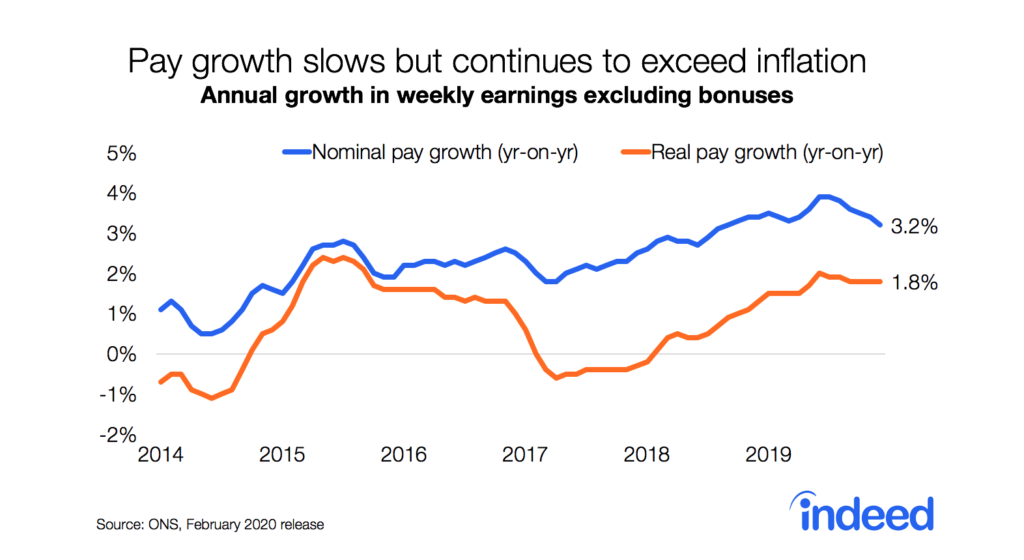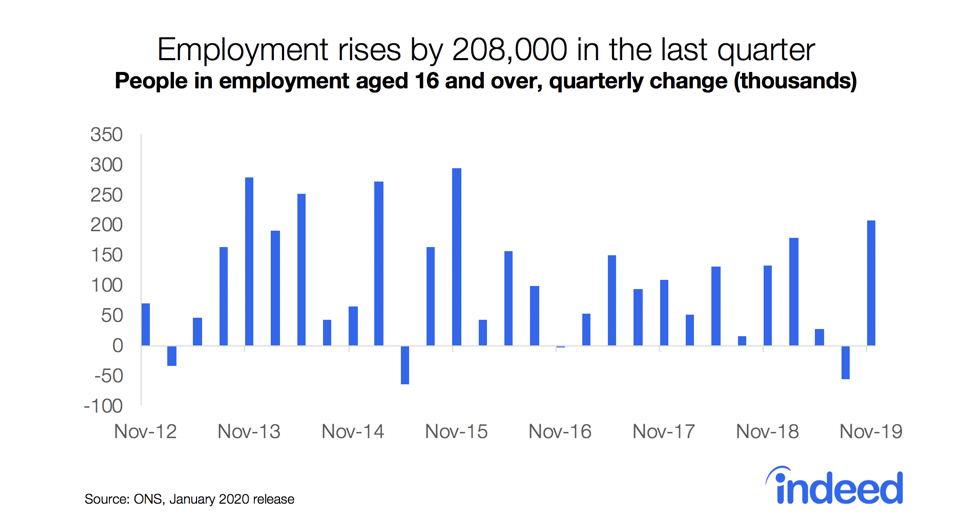Key points:
- The share of green job postings has grown at a subdued pace in recent years, suggesting a step-change will be needed to meet the government’s aim of creating 440,000 new green jobs by 2030.
- We estimate that green jobs need to be created at approximately 25 times the current pace to meet the government’s target.
- Recycling workers, ecologists, environmental managers and sustainability consultants are the top green job titles presently. Some green jobs offer attractive salaries relative to the UK average, but others roles are not particularly well-paid.
- The North East and Wales have the highest concentrations of green roles, with post-industrial areas tipped to be well-placed to gain green jobs amid the net-zero transition.
As the UK prepares to host the COP26 international summit on climate change in November, our analysis indicates there’s work to be done on the domestic front when it comes to adding green jobs. The government says it wants to create 440,000 new green jobs by the end of the decade to support the UK’s net zero transition. Various pledges have been made, including a boiler replacement grant, push towards electric vehicles, cutting buildings emissions and funds for developing alternative energy sources.
Over a period of around five-and-a-half years from 1 January 2016 to 8 October 2021, green jobs increased their share of overall job postings on Indeed by 13%. But the share of green jobs remains low at around 2,000 per million job postings. Our estimates suggest new green jobs need to be created at approximately 25 times the current pace to get the UK on track to meet the target by the end of the decade.
Definitions of green jobs vary. Our approach is to look at job titles that contain certain keywords related to renewable energies and then filter this list to identify job postings that are clearly dedicated to environmental installation, management or protection (details in methodology section below). This is a similar approach to ONET’s “Green New and Emerging” category, though somewhat narrower.
The Office for National Statistics estimates that there are currently just over 200,000 jobs in the UK low carbon and renewable energy economy. The ONS analysis uses a sector-based approach rather than looking at occupational categories. That’s an important difference, though the ONS’ estimates suggest even less growth of green jobs in recent years than our measure — in fact broadly static employment in the low carbon and renewables economy between 2015 and 2019.
Green jobs growth has been subdued in recent years
While there has been much talk in the past about the need to stimulate green jobs, the data suggest this hasn’t translated into much action. The share of green jobs on Indeed has risen by just 13% since the start of 2016. A rough calculation indicates that such a run rate would fall far short of the government’s stated ambition.
With zero employee turnover, adding 440,000 green jobs by 2030 would mean an average of nearly 50,000 green job postings a year. That assumes all jobs are advertised online (Indeed aggregates job postings from all over the web) and that one job posting represents one vacancy (which does not always hold in practice). That would correspond to around 5% of postings in a ‘typical’ year, whereas in 2021 to date the share has only been 0.2%. Though that’s just an approximation, and there are definitional differences in green jobs measures, it does suggest a big upshift will be required.
Recycling workers, environmental managers and ecologists are the top green job titles
Looking at the most popular green job titles from the start of this year, recycling worker is the top role at 19%. Environmental manager takes second place at 15% of green jobs, followed by ecologist (10%). Sustainability consultants, insulators, energy consultants, water treatment specialists, wind turbine technicians, environmental specialists and environmental engineers complete the top ten.
Though rhetoric often cites ‘high quality’ green jobs, typical salaries for these roles are mixed. Median annual pay for full-time employees in the UK is around £31,000, according to the Office for National Statistics. Environmental managers (£37,500) and sustainability consultants (£42,500) therefore appear to be relatively well-paid roles, while other green jobs tend to be paid similarly or below the UK average. Recycling worker is the lowest paid role, with a median advertised salary of £18,720.
North East and Wales have highest concentrations of green jobs
Some regions have particularly high specialisation in green jobs. The North East has the highest share, with 2,395 green jobs per million job postings, followed by Wales with 2,091. Research from the Social Market Foundation recently suggested that the North and Wales were among the areas best-placed to create green jobs from the net zero transition, partly due to the existing skills base in post-industrial regions.
Conclusion
Sluggish growth of green jobs in recent years underlines both the challenge and opportunity facing the UK. Momentum needs to pick up substantially to create the roles that will be needed to support the greening of the economy and transition towards net zero over the coming years.
Methodology
We identified job titles containing one or more of the following terms: biofuel, sustainability, sustainable, biomass, brownfield, climate, energy, environment, environmental, geothermal, green, hydroelectric, ecologist, methane, recycle, recycling, solar, photovoltaic, PV, thermal, wind, water, hydrology, hydrologist, geoscientist, geoscience, conservationist, climatology, climatologist, conservation, ecology, ecologist, ecological, ecosystem, biodiversity and biodynamic. We then filtered this list to identify job postings that were clearly dedicated to environmental installation, management or protection. We also included job postings that contained the following keywords in the job title: “heat pump”, “offshore wind”, “environmental, social & governance”.






